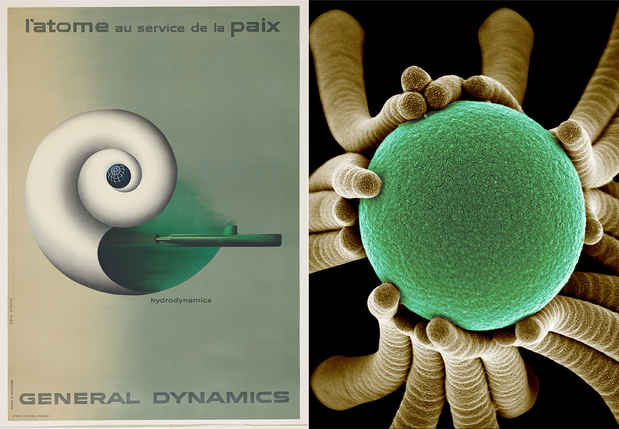“Wyss Institute Selects” Exhibition
Cooper-Hewitt, National Design Museum

This event has ended.
The next exhibition in Cooper Hewitt, Smithsonian Design Museum’s “Selects” series will be guest curated by members of the Wyss Institute for Biologically Inspired Engineering at Harvard University. Organized by the Wyss Institute’s founding director Don Ingber, in collaboration with his co-faculty, Joanna Aizenberg, Jennifer Lewis, Radhika Nagpal and Pam Silver, the exhibition examines the use of biologically inspired design principles to engineer a better world. n “Wyss Institute Selects” draws from Cooper Hewitt’s expansive permanent collection and the Smithsonian’s Hirshhorn Museum and Sculpture Garden and focuses on the concept of Biofuturism.
“As the first scientific institution to guest curate a ‘Selects’ exhibition at Cooper Hewitt, the Wyss Institute has brought together a revelatory selection of objects from our permanent collection that enlist nature as a guide, from a high-performance prosthetic foot inspired by the movement of a cheetah to the tetrahedral shapes appearing in Isamu Noguchi’s rocking stool,” said Caroline Baumann, director of the museum.
Concurrently on view with “Nature—Cooper Hewitt Design Triennial,” the exhibition explores the enduring influence of nature on artists and designers, from the beauty of natural forms to the underlying principles that provide living organisms with their incredible strength, resilience and efficiency.
Taking its name from the Futurism movement of the 20th century that embraced the power of technology, Biofuturism, according to the Wyss Institute, looks to nature for inspiration to drive a new wave of technology innovation. Bioinspired technologies are applied to a broad range of medical and industrial applications, as well as to gain further insight into how nature builds, controls and manufactures. On view will be the Robobee, designed by the Wyss Institute, which is the world’s first insect-scale flying robot. It was created to mimic the interactions of bees in response to the alarming collapse of bee colonies worldwide in recent years. Also on view will be items from Stoll’s Performance+ series of athletic garments, which showcase the unique potential of machine knitting in the advancement of smart textile technology. The balaclava incorporates a mesh structure with copper wire that heats air to 104 degrees Fahrenheit before it is inhaled, decreasing the incidence of chest infection among runners and other winter athletes.
The works on view in the Synthetic Biology section of the exhibition range from a textile by aboriginal designer Judith Kngwarreye who creates a landscape of local flora and fauna to a Bioimplantable Device for Reconstructive Shoulder Surgery, designed by Ellis Developments, which mimics the natural fibrous arrays of ligaments and acts as a scaffold for new tissue growth.
Another section of the exhibition will highlight how the beauty and elegance of a single natural form—the spiral—has inspired artists and designers throughout time. Objects range from a helical 18th-century candlestick to the Triton tea service by Arje Griest and Turret earrings by Ted Muehling, which take inspiration from spiral-shaped seashells.
“Wyss Institute Selects” is made possible by the Marks Family Foundation Endowment Fund.
Media
Schedule
from July 12, 2019 to March 08, 2020